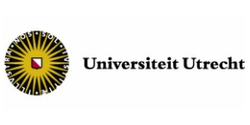PhD Position on Unravelling the Social Exposome for Better Health
Updated: 17 Apr 2025
Are you fascinated by the complex ways our social environments shape health? Do you want to develop cutting-edge methods to measure social networks at a population scale? This PhD position offers a unique opportunity to bridge social epidemiology, exposome research, and data science, pioneering new ways to understand how social exposures influence health over a lifetime.
Your job
Environmental exposures, such as pollution and green space, are well-documented health determinants, but social environments remain largely overlooked in exposome research. However, social relationships profoundly impact health. Traditional methods for studying social environments, such as surveys, provide valuable insights but lack scalability; a significant limitation for exposome research involving millions of individuals. Emerging methods using population-scale microdata now allow us to construct large-scale models of social opportunity structures, offering a promising new avenue for understanding social determinants of health. However, their potential remains untapped in exposome research.
This PhD project aims to fill this gap by developing and validating scalable, data-driven social network models to revolutionise how we measure social exposures in health research. You will be at the forefront of an innovative and interdisciplinary research project exploring how person-level opportunity structures for social interactions can serve as proxies for social networks and how they impact health. Your work will contribute to a groundbreaking methodological framework for modeling social exposures on a massive scale.
You will be teaching in courses of Human Geography and Spatial Planning for about 10% of your time.
Has this sparked your interest? We invite you to apply for our fully funded, full-time, four-year PhD position within the Exposome-NL Gravitation programme.
Requirements:
You are a motivated and proactive colleague who:
- has a Master’s degree in (Computational) Social Sciences, Data Science, or a related discipline (e.g., sociology or human geography) by the start of the position;
- has proven experience in working with large datasets and quantitative methods;
- can conduct academic research at the highest level both independently and collaboratively in a team;
- is fluent in English (C1 level) and has excellent communication skills;
- is well-versed in statistical programming languages, such as R or Python;
- (ideally) has gained some experience in writing scientific publications.
Salary Benefits:
- A position for one year, with an extension to a total of four years upon successful assessment in the first year;
- a working week of 38 hours and a gross monthly salary between €2,901 and €3,707 (salary scale P under the Collective Labour Agreement for Dutch Universities (CAO NU));
- 8% holiday pay and 8.3% year-end bonus;
- a pension scheme, partially paid parental leave and flexible terms of employment based on the CAO NU.
In addition to the terms of employment laid down in the CAO NU, Utrecht University has a number of schemes and facilities of its own for employees. This includes schemes facilitating professional development, leave schemes and schemes for sports and cultural activities, as well as discounts on software and other IT products. We also offer access to additional employee benefits through our Terms of Employment Options Model. In this way, we encourage our employees to continue to invest in their growth. For more information, please visit Working at Utrecht University.
36 - 40 hours per week
Princetonlaan 8a

